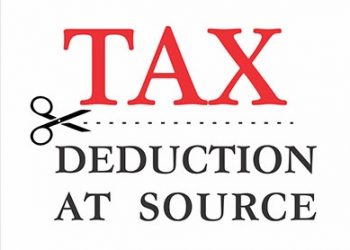In the present case judgement was announced by Hon’ble Supreme court in case of PILCOM v. Commissioner of Income-tax on 29.04.2020 wherein appellant Committee (PILCOM) was formed by Cricket Control Boards/ Associations of three countries viz. Pakistan, India and Sri Lanka, for purpose of conducting World Cup Cricket tournament for year 1996 in these three countries.
The assessee before us is PAK-INDO-LANKA, JOINT MANAGEMENT COMMITTTEE (known in short as PILCOM) which is actually a Committee formed by the Cricket Control Boards/Associations of three countries viz. Pakistan, India and Sri Lanka, for the purpose of conducting the World Cup Cricket tournament for the year 1996 in these three countries.
Two Bank accounts were opened by PILCOM in London to be operated jointly by the representatives of Indian and Pakistan Cricket Boards, in which the receipt from sponsorship, T.V. rights etc. were deposited and from which the expenses were met. The surplus amount remaining in the said Bank account was decided to be divided equally between the Cricket Boards of Pakistan and India after paying a lump-sum amount to Sri Lanka Board as per mutual agreements amongst the three Boards.
For the purpose of hosting the World Cup matches in India, the Board of Cricket Control of India (BCCI) appointed its own committee for discharge of its responsibilities and functions. The Committee was to be known as INDICOM.
During the course of enquiry, it came to the knowledge of tie I.T.O. (TDS), Ward- 21(4), Calcutta that PILCOM had made payments to ICC as well as to the Cricket Control Boards/Associations of the different Member countries of ICC from its two London Bank Accounts and was asked to show-cause why actions under Section 20(I)/194E of the I.T. Act, 1961 would not be taken against PILCOM for its failure to deduct taxes from the payments made by it and as referred to above in accordance with the provisions of section 194E.
Finally, the ITO passed an order under section 20(1)/194E dated 6-5-1997, in which he held that the PILCOM was liable to pay under section 201(1) the amount it had failed to deduct from the payments under consideration arid furthermore held that the PILCOM was also liable to pay interest on the said amount under section 291(1A) from the date of tax was deductible upto the date of actual payment. The ITO computed the total short deduction u/s. 194E to be Rs.2,18,293,00.
The CIT (A) held that so far as the payment of pound 1,20,000 being of the nature of amounts transferred from London to Pakistan and Sri Lanka for disbursement of prize money in those countries for matches played there is concerned, the prize money is always paid to the winner and other individual players in a particular match and, inasmuch as, these prizes were meant for matches outside India, the same could not be brought within the scope of section 115BBA.
Further CIT(A) found out that not all the matches were played in India and therefore out of the other payments made CIT(A) held that only 17/37th portion i.e. 45.94 percent of the other six types of payments could be considered to be attracted by the provisions of section 291(1)/194. He thus directed that so far as other six categories of payments are concerned. 45.94 percent of the payments covered by those categories
However, though, payments were described as Guarantee Money, they were intricately connected with event where various cricket teams were scheduled to play and did participate in event. Source of income was in playing of matches in India.
Thus, payments made to Non-Resident Sports Associations represented their income which accrued or arose or was deemed to have accrued or arisen in India and appellant was liable to deduct Tax at Source in terms of section 194E.
Regarding DTAA benefit, Hon’ble Supreme court agreed with the view of High court that the obligation to deduct Tax at Source under Section 194E of the Act is not affected by the DTAA and in case the exigibility to tax is disputed by the assessee on whose account the deduction is made, the benefit of DTAA can be pleaded and if the case is made out, the amount in question will always be refunded with interest. But, that by itself, cannot absolve the liability under Section 194E of the Act.
In the premises, it must be held that the payments made to the Non Resident Sports Associations in the present case represented their income which accrued or arose or was deemed to have accrued or arisen in India. Consequently, the Appellant was liable to deduct Tax at Source in terms of Section 194E of the Act.
To read full judgement CLICK HERE.
This article is just for information purpose and are personal views of the author. It is always advisable to hire a professional for practical execution. If you need assistance you can ask a question to our expert and get the answer within an hour or post a comment about your views on the post and also subscribe to our newsletter for latest weekly updates.














